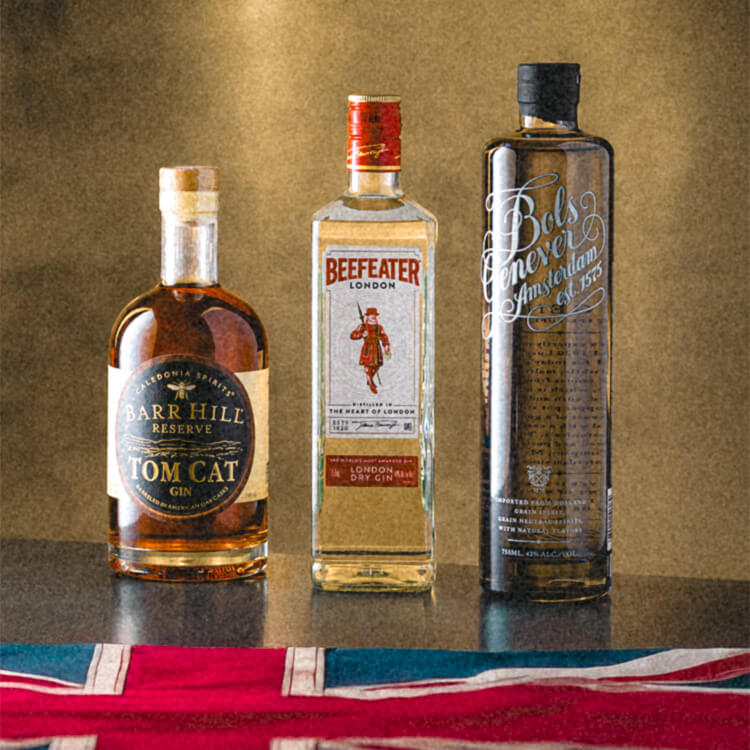Dive into the captivating history of gin, a spirit that transformed from a medicinal elixir to a celebrated staple in the world. This detailed exploration traces gin’s origins. It sheds light on the early developers, directly addressing the question of who invented gin as we know it. We’ll follow its tumultuous path, which included the infamous Gin Craze that dramatically reshaped English society. Despite this, gin eventually became established as a beloved and versatile spirit. Its journey highlights its significant impact on culture and society.

The Origin of Gin: From Medieval Elixirs to Dutch Genever
The origin of gin is a fascinating journey that begins in the Middle Ages. Its roots lie in older distillation practices primarily used for medicinal purposes. The precursor to modern gin was a unique concoction created by monks and alchemists across Europe, notably in Italy. They incorporated juniper berries for their perceived health benefits, particularly against ailments like the plague.
By the 16th century, the Netherlands became a pivotal point in gin’s development. Here, the Dutch cultivated a juniper-based spirit known as genever, initially designed as a medicinal tonic. While no single individual can be credited with inventing gin as a complete concept, the evolution of genever forms the direct lineage of gin as we know it today. It was this Dutch spirit that gained fame, with soldiers famously consuming genever for its calming effects before battle, giving rise to the well-known phrase “Dutch Courage.”
The Gin Craze in England
The true transformation of gin began when William of Orange, leader of the Dutch Republic, took the English throne in 1688. William encouraged the distillation of spirits in England by lowering taxes and licensing fees for local production. This led to widespread production and consumption of gin in England, particularly in London. By the early 18th century, gin production exploded, leading to a period known as the “Gin Craze.” Cheaply made and highly accessible, gin became the drink of the masses, but its rampant consumption led to serious social problems, including widespread drunkenness and social disorder.
Regulation and Refinement
Continuing through the history of gin, the British government, seeking to curb the negative effects of excessive gin consumption, introduced a series of legislative acts starting in the early 18th century. The most notable, the Gin Act of 1751, was effectively enforced and led to a decline in gin’s social problems. These regulations helped to improve the quality of gin being produced. Over time, gin shifted from a poor man’s drink to a more respectable spirit associated with the emerging cocktail culture in the 19th century, particularly in colonial settings.
Gin Goes Global
The global spread marks another significant chapter in the history of gin. As the British Empire expanded, so too did the popularity of gin. It played a pivotal role in British colonial society, particularly in tropical regions. Gin was often consumed with tonic water, which contains quinine, an effective anti-malarial agent. The iconic Gin and Tonic cocktail was thus born out of practical necessity and quickly became a staple in British colonies.
The Craft Gin Movement
In the late 20th and early 21st centuries, gin experienced a renaissance thanks to the craft spirits movement. Distillers began experimenting with local botanicals and artisanal production methods, leading to a proliferation of unique, high-quality gins. This period also saw the rise of gin-focused bars and a renewed interest in classic and innovative gin cocktails.
Cultural Significance
Throughout its history, gin has been more than just a spirit; it has been a cultural symbol. In literature and film, from William Hogarth’s “Gin Lane” to Ian Fleming’s James Bond, gin has been portrayed as both a vice and a sophisticated choice. Today, gin is celebrated in numerous festivals and competitions around the world, reflecting its status as a culturally rich and versatile spirit.
Conclusion
The history of gin is a testament to its resilience and capacity for transformation. Gin has journeyed from medicinal origins, through social upheaval, to its eventual rise as a sophisticated and beloved spirit. It has continuously adapted to meet the tastes and needs of changing times. Today, gin is appreciated for its complex flavors and mixability. It’s also revered for its rich historical tapestry, truly an icon of the spirits world. Gin enthusiasts and distillers alike continue to honor its past while crafting new expressions, ensuring its place in the future of global spirits.
Find Your Perfect Gin:
Now that you’ve journeyed through the rich history of gin, why not discover the diverse world of flavors available? Explore our range of quality gins, perfect for any occasion.


